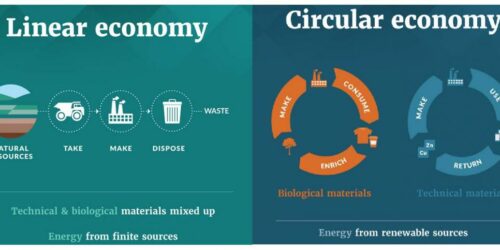Facebook’s Sustainability, Corporate Social Responsibility, Climate Change, Energy Inefficiency, and Waste Management

Facebook’s Sustainability, Corporate Social Responsibility, Climate Change, Energy Inefficiency, and Waste Management
Among 10 major natural environmental problems, Facebook contributes to, and gets affected by, the following issues mostly: Climate Change, Energy Inefficiency, and Waste Management.
Climate change is everyone’s problem, as well as Facebook’s. Ozone layer depletion, global temperature rise, decline in crop yields will affect every individual and business on the planet sooner or later. In the past years, Facebook was severally accused of hosting too many climate deniers on the platform. US regulators wanted Facebook to take this concern seriously and stop climate denial propaganda in the platform, and Zuckerberg had to even testify before the Congress about the climate denial information spreading on Facebook (Penney, 2020).
When it comes to energy inefficiency, Facebook took solid steps particularly in the last few years. One of the commitments of the company was to reduce its greenhouse gas footprint by 75%, and reach 100% renewable energy in operations by 2020. Facebook has many data sites where the company mainly stores and manages its servers, Facebook promised that the new data centers they build will be supported by 100% renewable energy. In 2019, they had announced that the operations achieved 86% renewable energy, and a 59% reduction in GHG emissions since 2017 (Facebook (Ed.), 2020).
In terms of waste management, Facebook can be a role model for the community, employees, and public by committing to 3R -Reduce, Reuse, and Recycle-, and having a zero-waste policy. Having 85 premises in 35 countries, Facebook’s waste management practices, good or bad, would create a huge impact on the environment.
I believe sustainability is about more than operating responsibly. It’s an opportunity to support and educate the business’ community, and make a positive impact on the planet. For instance, on the climate change topic, stopping global warming is something we can do only as a global community, and as one of the most influential companies of the world, Facebook should play its part by not only taking individual actions, but also influencing, educating, encouraging the public towards responsible living.
Facebook is aware that in order to survive in this day and age, it needs to take care of People, Profit, and Planet at the same time. Ignorance or negligence of one of them can cost all three of them for the company. To that end, a couple of years ago the company launched a separate web page dedicated to sustainability subject where the company’s latest actions and commitments related to sustainable operating is discussed and showcased. Every year, Facebook also releases a Sustainability Report demonstrating its responsible practices for the previous year (Facebook (Ed.), 2020).
Zuckerberg is aware of his and his company’s responsibility, as well as influence. After Trump withdrew from the Paris Agreement, he declared that he doesn’t support the decision as he thinks withdrawing from the Paris Agreement puts the world children’s future at risk.
Facebook’s environmental stakeholders include national and international governments, green consumers, green investors, employees, NGOs, activists and other interest groups who focus on and campaign for the environment and our planet. Facebook makes partnerships and collaborations with them from time to time to showcase its environmentally friendly stance. Since 2011, Facebook and Greenpeace are partners to promote clean, renewable energy and improve energy efficiency in Facebook’s data centers. Also, Facebook is among members of the World Resources Institute (WRI) Aqueduct Alliance and support the Bonneville Environmental Foundation (BEF) on water projects within the community (Facebook (Ed.), 2020).
Businesses and societies use increasing amounts of materials, energy and water as they grow, and creates more waste. If there aren’t good policies in place, or if the business/society doesn’t have a mindset caring for the environment, then such growth’s impacts on the environment increase exponentially. Hence, unrestrained growth may result in severe damages on the environment if people or technology fails to advance significantly to keep up with the challenges that come with the fast economic growth (Carrol & Brown & Buchholtz, 2018). Growth may sound appealing for the companies, but as in everything, if it’s not controlled, it turns into a planet killer. Therefore, being proactive and mindful in protecting the environment while they grow must be the bottom line for businesses.
References
Carroll, A. B., Brown, J. A., Buchholtz, A. K. (2018). Business & Society: Ethics, Sustainability & Stakeholder Management. Boston, US: Cengage Learning.
Facebook (Ed.). (2020). Industry Collaboration. Retrieved August 1, 2020, from https://sustainability.fb.com/collaboration-for-good/industry-collaboration/#:~:text=As%20part%20of%20our%20efforts,water%20projects%20within%20our%20communities.
Penney, V. (2020). How Facebook Handles Climate Disinformation. New York Times. Retrieved August 1, 2020, from https://www.nytimes.com/2020/07/14/climate/climate-facebook-fact-checking.html





